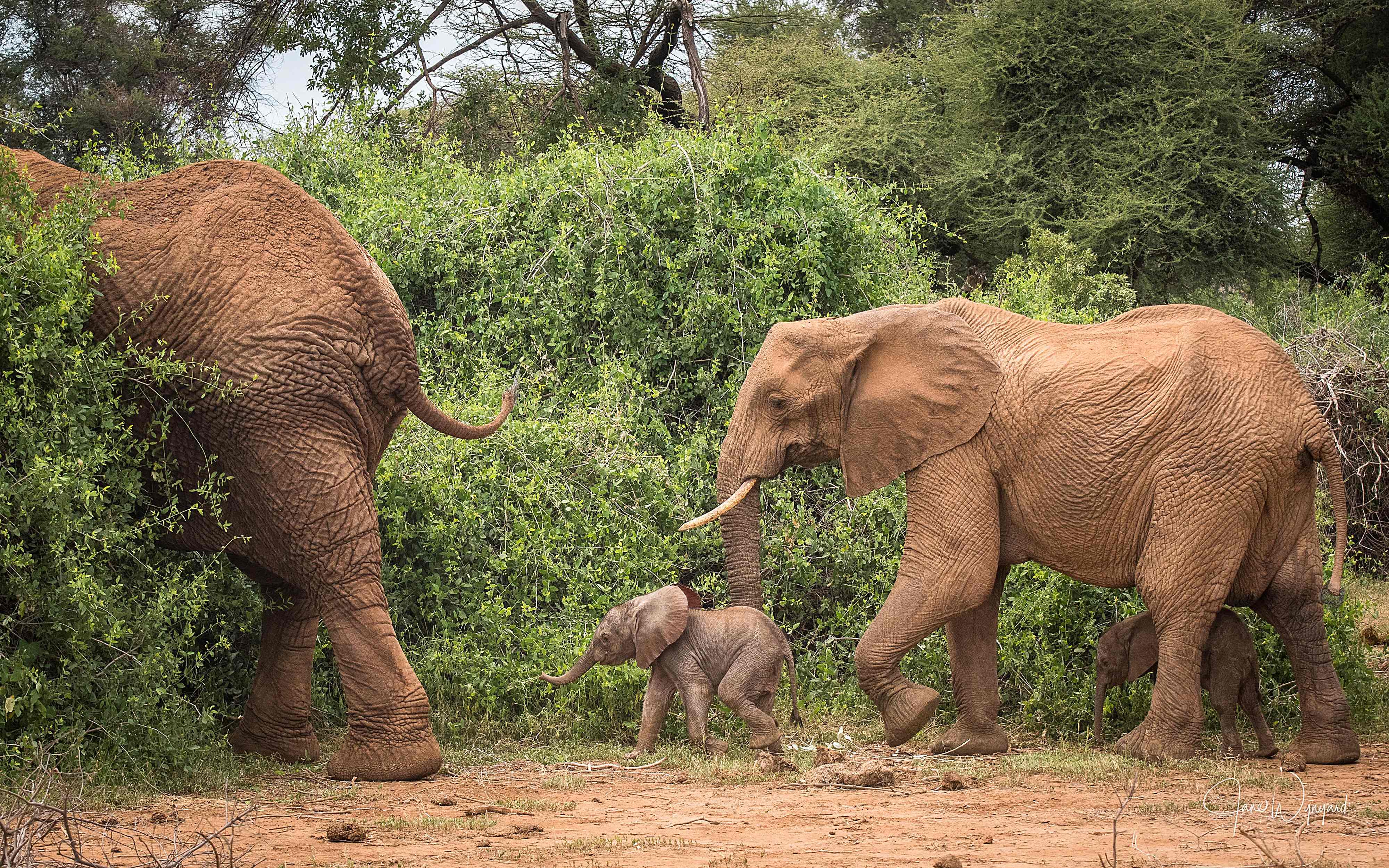Rare elephant twins born in Kenyan national park for first time in more than a decade
Samburu last saw elephant twins in 2006, with them making up just 1% of births
Your support helps us to tell the story
From reproductive rights to climate change to Big Tech, The Independent is on the ground when the story is developing. Whether it's investigating the financials of Elon Musk's pro-Trump PAC or producing our latest documentary, 'The A Word', which shines a light on the American women fighting for reproductive rights, we know how important it is to parse out the facts from the messaging.
At such a critical moment in US history, we need reporters on the ground. Your donation allows us to keep sending journalists to speak to both sides of the story.
The Independent is trusted by Americans across the entire political spectrum. And unlike many other quality news outlets, we choose not to lock Americans out of our reporting and analysis with paywalls. We believe quality journalism should be available to everyone, paid for by those who can afford it.
Your support makes all the difference.Twin baby elephants have been born at a Kenyan reserve, an event said to be extremely rare.
The UK-registered charity Save the Elephants, which is based in Kenya, said this was only the second time they had witnessed twin elephant births at northern Kenya’s Samburu National Reserve.
Rangers are keeping a careful watch on the twins, which will have a perilous start to life, as the chances of their survival are generally thin.
“Twins are rarely encountered in elephant populations – and form around only 1 per cent of births,” Save the Elephants’ founder, Iain Douglas-Hamilton, said in a statement.
“Quite often the mothers don’t have enough milk to support two calves,” he added.
The new addition of the twins in the reserve was first spotted by guides from the park’s luxury eco-camp Elephant Watch Camp on Sunday.
The male and female calves, who are yet to be named, were roughly a day old when they were found by the guides, according to Save the Elephants.

A video was shared by the charity, which showed the two frail calves on the day they were born. The video showed the twins with their mother Bora and another watchful male elephant called Daud.
“The next few days will be touch and go for the new twins but we all have our fingers crossed for their survival,” Douglas-Hamilton said.
The twins are Bora’s second born. Her elder calf was born in 2017 and was seen in the vicinity of Bora and the twins on Sunday.
Mr Douglas-Hamilton said the birth of twin elephants had been reported by the charity just once before in Samburu, in 2006. Both the calves had, unfortunately, died shortly after they were born.
Another twin elephant birth was reported in Sri Lanka last year, for the first time in nearly 80 years.
Before that, another such birth was reported in Kenya at Amboseli National Park in August 2018.
African elephants have a gestation period of 22 months – the largest in any living mammal – and give birth roughly every four years.
According to the Kenya Wildlife Service, the country’s elephant population has more than doubled since 1989, when it was 16,000, to 34,800 in 2020.

Join our commenting forum
Join thought-provoking conversations, follow other Independent readers and see their replies
Comments